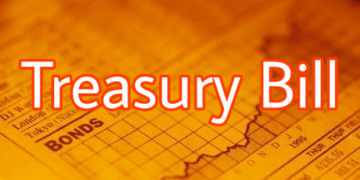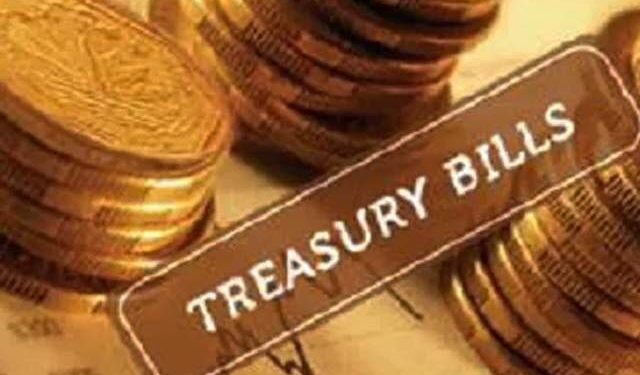Low and ominous rumblings are vibrating up and down banking halls in Ghana. There is some kind of gig going on with treasury bills that smells a bit off.
Many of us casual observers of the financial scene only know of three types of treasury bills: 91-day, 182-day & 1-year. We also know that the more the number of days in the description, the higher the interest rate.
We may not know what “duration risk” means or why the longer we hold an instrument the higher the chance that interest rates will go up and making our choice to have bought a t-bill months ago look less wise. But we do intuitively grasp that if the govt wants to hold our money for longer, it must pay us more.
Hence, when in early 2023 the Ghanaian government introduced 3 new t-bills, they didn’t bother to inform us and we also didn’t care much. The government’s sale of more than GHS 2.4 billion of these new 35-day, 49-day, and 77-day bills seemed like a drop in the ocean given the vast amounts of money it has been borrowing of late. No biggie.
But among investment professionals, a few eyebrows were raised. The introduction of these new tenors came at a time when government finances were in particularly bad shape. This was the period when the detested “debt exchange” was underway, and haircuts were in the air. A government issuing debt for 35 days seemed like desperation territory.
Globally, durations shorter than 3 months for central government debt are not very common. Central banks, of course, do it all the time because of their “open market operations” to manage inflation and other monetary targets. But central governments, not so much.
Tanzania did introduce a 35-day bill in the early days of its fixed-income market, but it banned it the next year. Only to reintroduce it again in 2002, as part of major fiscal reforms. It currently only uses the bill for cash management purposes. The Philippines also banned 35-day bills in 2004 and only reintroduced them during COVID for fiscal backup purposes.
Anyway, for most of 2024, the govt didn’t sell any of these shortman-danger t-bills to raise money. In fact, until August 2024, not a single cedi was sold. Then come August, more than GHS 810 million of the 35-day & 49-day bills suddenly surfaced for sale, more than half the volume of the well-established 182-day bills.
So what is the issue? Well, you’ve probably guessed already that these bills are not auctioned like the 91-day, 182-day & 1-year ones. So, pricing can be rather opaque.
In the Finance Ministry’s debt reports, you won’t find any discount rate or interest rate information about them. The other thing is that a lot of the big institutional investors would normally prefer longer-dated bills, notes and bonds to minimise rollover risks. Speculators, on the other hand, don’t mind short-term bills at all. Which brings up the main issue.
This month, things went haywire. Because these bills are not auctioned and a lot of people don’t know about them, the lucky few brokers who were issued the bills to resell have to do aggressive door-to-door marketing.
Now, wait for the banger, some are offering 29% interest rate! So, essentially, it is far juicier to buy these short man-danger bills than the longer-dated ones. A trusted source tells me that a fast-speaking hawker from one of the ambitious new brokerages we have in Ghana, licensed to deal in government bills just a few years ago, was harassing one of the banks to scoop some of the stash up for 35% interest rate!
What is going on? Coming at a time when the government is struggling to sell the main line of t-bills, this whole situation feels weird. Last week, the government sold just about 70% of the T-bills it had in hand. Mostly because it wouldn’t raise rates to attract more buyers.
And with investors having cooled toward t-bills due to a combination of rates, new Bank of Ghana reserve rules, a lingering fear of default, and general liquidity preference as confidence slacks, it smacks of underhand dealings when lesser-known brokers are banging doors selling government debt at shylock rates.
Frankly, it suggests that the government’s cash crunch is more desperate than it wants to admit. And since raising rates at the public auction would amount to a form of admission, the shrewd move is to sell higher-rate bills undercover. Perhaps, with the quiet acquiescence of the IMF.
The problem is, that investors talk, word gets around, and, to be honest, confidence isn’t helped by hungry-sounding brokers flogging bills door-to-door like they are so much contraband.

















































































